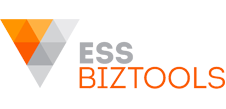Posted: 21 September 2016

Tax Incentives for Early Stage Investors
The Early Stage Innovation Company legislation offers significant taxation benefits to eligible investors. To make Early Stage Innovation Companies work there has to be investors. Investors can qualify for two major tax incentives:
1. the 20% tax offset - which is available for sophisticated investors - up to $200,000 and for retail investors up to $10,000; and
2. the capital gains tax exemption - which is available to investors from the end of the first twelve months of their investment to the end of nine years.
Sophisticated investors are people who have had their accountant prepare a statement to the effect that their net worth is over $2.5M and their assessable income for the last two years has exceeded $250,000.
For companies to qualify as an ESIC they need to have passed two out of three tests.
The first test, which we've called the Provisional Test, relates to whether the company is less than three years old; however in some instances companies aged up to six years old can be eligible to be classified as an ESIC.
The company's expenditure in the previous income year (2015/16) must be under $1M and the company's assessable income in that year has to be under $200,000 excluding any amount of grant income received under the Accelerating Commercialisation Grant Program. Also, the company cannot be listed on a Stock Exchange anywhere in the world.
Now having passed the Provisional Test, the company should then proceed to assess itself under the Gateway Test. Under the Gateway Test, the company needs to earn, at least, 100 points. These can be earned from activities such as:
• research and development expenditure
• being a participant in the Accelerating Commercialisation Grant Program
• having participated in an Accelerator Program
• having already raised $50,000 or more from "arms-length" investors
• whether the company has already registered patents, plant patents, innovation patents or registered designs
• whether the company has entered into an agreement with organisations that are listed under the Higher Education Act or the Research & Development Act
If the company has earned 100 points or more and they have maintained the records, as part of the substantiation of that, then they have self-assessed themselves as being an ESIC.
If the company is unable to satisfy the requirements of the Gateway Test, they can then move onto the Principles Based Test. The questions that have to be answered positively if the company is going to be able to self-assess under the Principles Based Test are:
1. Is the company genuinely focused on commercialisation of products, processes, services, marketing or organisational methods? Documentation will have to be prepared and filed so the documentation can be produced to support the statement the company is making.
2. Does the company have high growth potential? This is a question that undoubtedly is going to require support from an independent organisation that the company's products, processes, services, marketing or organisational methods are of such a magnitude that the company does have a high growth potential.
3. Can the company successfully scale the business? This question will require the company to be able to identify how it will be able to 'scale' the company's operations in Australia and elsewhere.
4. Do the company directors have supporting evidence that the company's products, processes, services, marketing or organisational methods have broader than local market opportunities? The company will undoubtedly require input from external consultants identifying how the company will be able to identify and then successfully market at an appropriate price the company's products etc., in international markets.
5. Does the company have a competitive advantage? The answers to this question will need to be documented so that the answers are available for perusal by potential investors and ultimately the Australian Taxation Office.
The company is able to self-assess, but from an investor's point of view, you need to make sure that they have undertaken this in a professional manner and as accountants you will need to be assisting your clients to make sure that the company in which they are planning to invest has undertaken this self-assessment process in a proper professional manner.
Ultimately the final arbitrator of whether the company is an ESIC is going to be the Australian Taxation Office in conjunction with AusIndustry, but many companies will be trying to get investors to invest at an early stage; in some instances prior to the ATO giving their formal answer.
Now under the Gateway Test this should be fairly clear cut. There are seven processes listed under that test and a company has either done them or hasn't done them and they should be able to supply supporting evidence.
Under the Principles Based Test there is a requirement for opinion to be expressed and that opinion should be supported, in each case (the five questions), by supporting evidence that the company is indeed committed to the path those questions are relating to.
The tax incentives are not available for shares that were not purchased directly from the company so the ongoing purchase or sale of shares does not transfer the entitlement for the 20% tax offset or the exemption from capital gains tax.
Investors in a widely held company, so a public company, can acquire shares in a company that aspires to be an ESIC and obtains the ATO benefits.
An investor who holds more than 30% equity in the company is not entitled to the taxation benefits and shares that have been issued as part of an employee share scheme are not eligible.
So that is the background of the tax incentives that are available for Early Stage Investors. The government is hoping that this is going to be a significant marketplace and many of you, I'm sure, will closely look at companies that are claiming to be an ESIC as part of your investment process because as compared to the traditional section 708 of the Corporations Code investments an investment in an Early Stage Innovation Company offers some additional benefits, which are obviously the tax offset and the capital gains tax exemption.
For accountants, if you want to know more about this overall process, ESS BIZTOOLS has developed a special product package which we're marketing for $299 (incl GST) for a 12 month's subscription which is available 24/7 in an office.
Or you could subscribe to the total ESS BIZTOOLS Gold package for $2,970 (incl GST) which includes the Early Stage Innovation Company Package and numerous other products and services.
So accountants, I hope this has given you an idea of how this process works and, if you are showing this webinar recording to any of your clients who are potential investors, I hope that this has outlined the journey that you need to undertake to be able to invest in this new type of company.
Downlaod a free copy of our article that we prepared on Tax Incentives for Early Stage Investors:
.
{snippet free-report}
Click to view a recorded webinar on Tax Incentives for Early Stage Investors
Podcast 'Accountant's Minute'
Latest business advisory news for Accountants in under a minute.
Episode 079 - Tax Incentives for Early Stage Investors
Podcast Link:
As their trusted advisor, can you assist your SME clients with business advisory services?
To download free material click the link below:-
{snippet free-report}
Watch out for the next episode of "Accountant's Minute" or subscribe to the podcast on iTunes for more news, ideas and tips on providing outstanding non-compliance services to SME clients.


























































